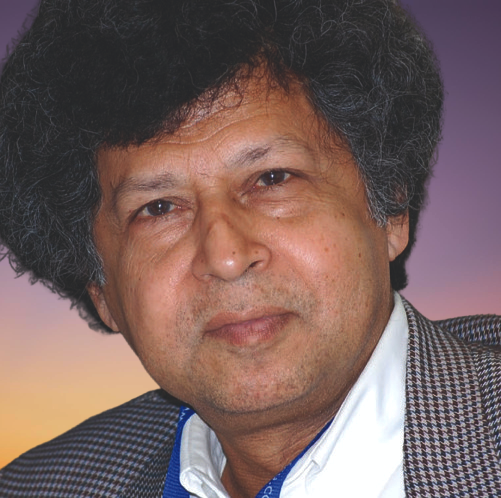Column

Image: Collected
The deterioration in relations between India and Bangladesh is no longer just a diplomatic issue-it's a crisis threatening to unravel decades of shared history and cooperation. Disturbingly, what was once a bond of solidarity is now mired in escalating hostility. Public spectacles of desecrating each other's national flags and inflammatory rhetoric are emblematic of the growing divide. In Dhaka, the Indian flag has been trampled; in India, the Bangladeshi flag has been burned and proposed as doormats. Such provocations do not just offend-they poison the well of mutual respect.
West Bengal Chief Minister Mamata Banerjee's controversial call for UN peacekeepers in Bangladesh underscores the extent to which tensions have escalated. This mistrust must end before the damage becomes irreversible.
India has raised concerns about the persecution of minorities in Bangladesh, criticizing the caretaker government for its perceived inaction. Meanwhile, Bangladesh accuses India of meddling under the guise of minority advocacy, alleging that exiled Prime Minister Sheikh Hasina is leveraging Indian support to destabilize the country. Both sides, unfortunately, have grounds for grievance.
Recent attacks on minorities in Bangladesh have drawn international attention, including condemnations from India. But India's actions haven't been above reproach. Violent protests in Kolkata, Agartala, and Mumbai-where Bangladeshi flags were burned-only fuel Dhaka's perception of Indian interference.
It is not unusual or unprecedented for India to raise its voice out of concern for the safety of minorities in Bangladesh, its closest neighbor with whom it shares more than 4,00 km of common border. During the 1971 Liberation War, India's intervention was a moral and strategic decision grounded in international law. Similarly, when Muslims in India face persecution, Dhaka's outcry is not unwarranted. Protest does not equate to interference; it is a call to uphold universal human rights.
A Shared Struggle
Minority persecution is a festering wound for both nations. Reports indicate that communal violence in India claims over 130 Muslim lives annually, while Bangladesh's Hindu-Buddhist-Christian Unity Council documented more than 1,000 attacks against minorities in the past year. The tragic reality is that extremist factions in both countries exploit these tensions for political gain.
This exploitation has historical precedent. From the Hazratbal Mosque riots in 1964 to the 2002 Godhra violence, religion has repeatedly been weaponized. Opportunistic politicians benefit, but societies on both sides of the border suffer. The recent unrest linked to ISKCON in Bangladesh and the politically charged arrest of Chinmoy Krishna exemplify how religious tensions are manipulated for political ends.
Restraint and Reconciliation
Resolving this crisis requires accountability on both sides. India must reconsider allowing Sheikh Hasina to engage in anti-Bangladesh rhetoric from its soil, as her presence exacerbates tensions. For Bangladesh, tempering anti-India sentiment among its political elite is imperative. Calls to "cut off" India ignore the geographic and historical ties that bind the two nations.
Regional cooperation, modeled after successes in Europe or Southeast Asia, could be a game-changer. Shared challenges-climate change, cross-border crime, and water resource management-demand collaboration, not confrontation.
The stakes are clear: if extremists are allowed to manipulate religion and nationalism for political gain, both nations lose. The path forward requires humility, restraint, and a renewed commitment to cooperation. As the saying goes, it takes two to tango. For the sake of regional stability, India and Bangladesh must find their rhythm together.
December 2, 2024, New York
The writer is a journalist and author based in New York.

























Leave a Comment
Recent Posts
Pedaling Through the Mangroves ...
The journey from the bustling streets of Barishal to the serene, emera ...
Why the Interim Government mus ...
Two weeks out from what is expected to be a red letter day in the figh ...
Doesn’t matter who thinks what about Bangladesh deci ..
The Other Lenin
US President Donald Trump said his administration
Govt moves to merge BIDA, BEZA, BEPZA, MIDA